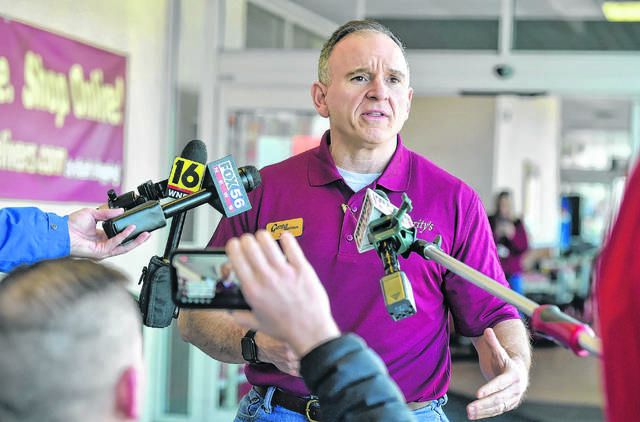Pennsylvania has various bodies of water which help sustain life. It’s important that our water is conserved and kept clean to drink. That’s where the Penn State Extension Master Watershed Steward Program comes in. This program is currently looking for individuals interested in the environment. Volunteer who want to learn about our water ecosystems and how to protect them will be trained.
A new class will be start in May and end in August. Volunteers will spend more than 40 hours in 10-week sessions held throughout the summer at partnering environmental organizations throughout Lackawanna, Luzerne, and Wyoming counties. They will learn many topics pertaining to water, including watersheds (areas of land that drain water into a body of water) and its geology. They will also see firsthand the wildlife living in the water. During one of the field trips the program offers on Saturdays, volunteers will step foot into the South Branch Tunkhannock Creek to look for macro life (invertebrates) swimming in it and learn how to identify them.
Another field trip is to The Land at Hillside Farms in Shavertown where volunteers will be taught agricultural runoff and how it affects water. They will also go to Scranton for a sustainable sites tour which takes volunteers to locations that have green stormwater infrastructure. The infrastructure helps prevent stormwater runoff, which is raindrops flowing off streets and sidewalks and into catch basins and sewers.
According to the Penn State Extension, over 12,200 miles of Pennsylvania streams are polluted from stormwater runoff that eventually flows into the Chesapeake Bay in Maryland.
“There’s a big environmental push right now to clean up the Chesapeake Bay,” said Lexie Kelly, a volunteer of the program. “Because we’re above it, what we do up here definitely impacts Chesapeake (Bay).”
“But it’s also good for us to do it (prevent stormwater runoff) here just to have clean water for us,” added Elizabeth Rosser, MWS (Master Watershed Stewards) coordinator of Penn State Extension.
Volunteers will also do group projects. One group project last year was a rain barrel workshop with the LRCA (Lackawanna River Conservation Association). Volunteers made rain barrels which they took home. The rain barrels help prevent stormwater runoff by releasing water slowly into a homeowner’s property. They also help conserve water because homeowners can use the rain water gathered in the barrel to water their plants.
Penn State Extension helps other like-minded organizations that attempt to better the environment. It helps the LRCA and Pennsylvania American Water with their water camp held in the summer. The organization also goes to tabled events where members set up educational booths and give presentations and talks to groups about watershed issues.
“Our main focus is to educate and get out in the community and teach people about watershed issues and what a watershed is, what stormwater is, and things you can do at home to help mitigate the effects of that,” said Rosser. Penn State Extension also works with EPCAMR (Eastern Pennsylvania Coalition for Abandoned Mine Reclamation), which collects iron oxide for abandoned mines.
Penn State Extension encourages anyone, regardless of occupation, to become a master watershed steward.
“It’s a fun program if you’re interested in the outdoors or interested in learning more,” said Rosser. “You don’t have to have a background in science or a background in watersheds. We’ve had folks who were teachers, nurses, (and) jobs that have nothing to do with the science field but they are just interested in conserving water.”
“It’s for people who have interest in the environment,” added Kelly. “We enjoy going out to the community and educating other people.”
To become a certified Master Watershed Steward, you must complete 40 hours of training and 50 hours of volunteer service. In order to keep your status as certified Master Watershed Steward, you must complete at least 10 hours of continuing education and 20 hours of volunteer service annually.
Anyone who interested in the program may call Elizabeth Rosser at 570-825-1701 or email her at emr40@psu.edu.




